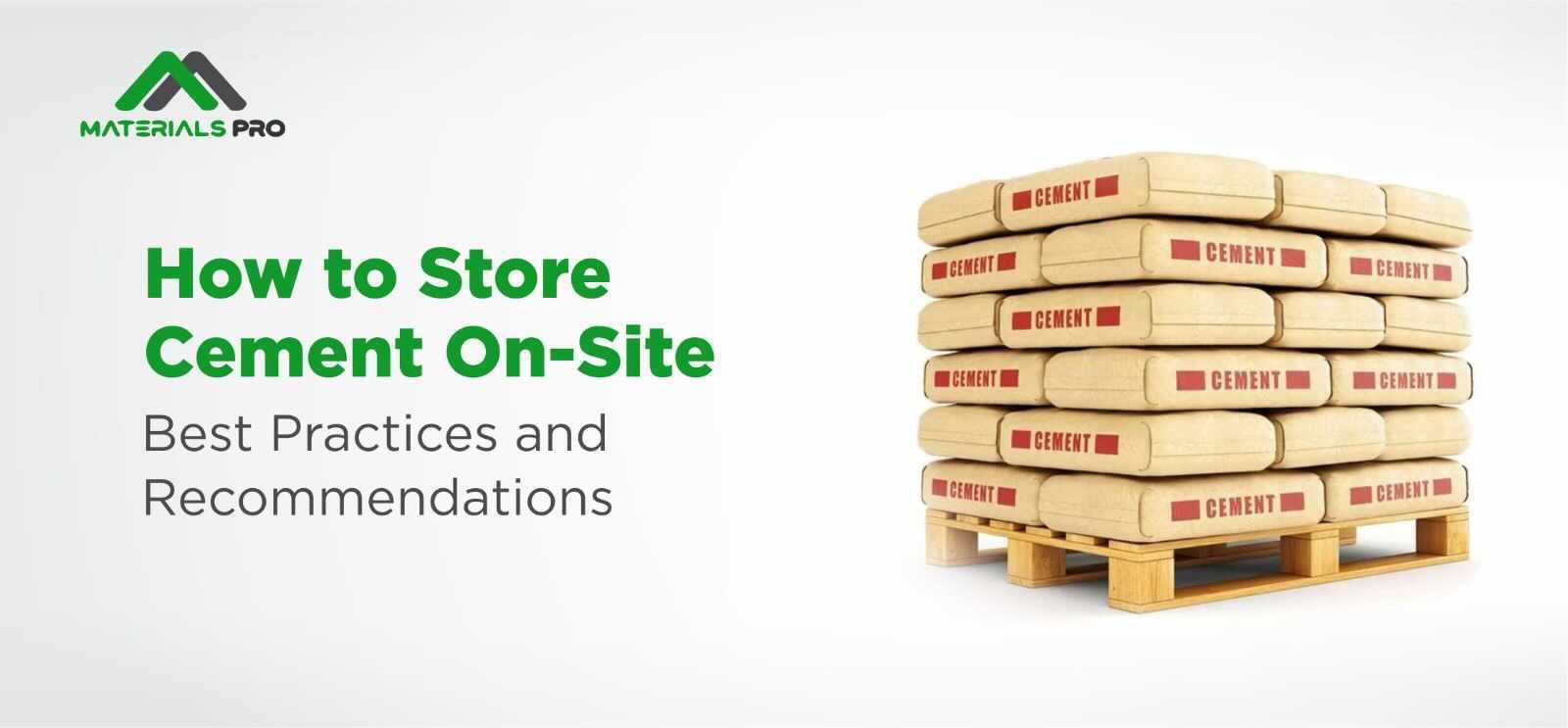How to Store Cement On-Site
MaterialsPro
Feb 22, 2023 - 5 minutes
Cement is one of the most essential and popular building materials used in the built industry. For better management of materials due to frequency of use at project sites, it is a common practice that cements are bought in bulk quantity at a time. However, because cements are highly susceptible to damage from external factors like water and moisture as it could go hard making it unusable, it is important that proper precautions such as place of storage, arrangements, shelf life among others are put into consideration when storing cement at the construction site.
Below are essential tips for proper storing and handling of Cement to retain its quality
- Store Cement in a Dry Place
Cement is highly reactive to heat and humidity, so it should be stored in a cool and well-ventilated environment. The ideal storage temperature for cement is below 25°C (77°F). In addition to temperature, humidity is another factor that affects cement storage. The moisture content of the surrounding environment can cause cement to absorb water and harden or clump. Cement should be stored in a dry place to prevent moisture from accumulating. A moisture-free environment, such as a covered warehouse or room, can help maintain the quality of cement.
- Store Cement Away from Other Materials
Cement is a hygroscopic material that absorbs moisture from the air, which can cause it to harden and clump, making it unusable. Storing cement separately from other materials like wood, paper and plastics can help prevent this problem and ensure that it remains in good condition for use in construction. Additionally, cement can be quite heavy, so storing it separately can also help prevent damage to other materials or structures that could be caused by the weight of the cement.
- Keep Cement Away from Direct Sunlight and Heat Sources
Direct sunlight and heat sources can cause rapid moisture loss for cement. When cement is exposed to high temperatures, it can quickly lose the moisture needed for it to harden. This can lead to poor bonding, cracking, and structural instability. It is essential to keep it away from these conditions to maintain its quality and effectiveness.
- Cover Cement with Tarpaulins or Plastic Sheets
Exposure to water or moisture can weaken cement and cause it to lose its structural integrity. It can lead to cracks, erosion, and other forms of damage that can make the cement unsuitable for use in construction. Covering it with tarpaulins or plastic sheets protects it from exposure to water and moisture, thus preserving its structural integrity.
- Follow the First in First Out (FIFO) Rule
While storing cement, time is of importance because of its limited shelf life (of 3 months). To ensure that is adhered to, cement should be used following the first in, first out rule. This is to maintain the quality and protect it from deterioration over time, which can affect its performance and strength. Using older cement for construction work can result in weaker and less durable concrete or mortar.
- Stacking of Cement Bags
The height stack for cement should not be more than 15 bags. Storing more than that at a time can create an environment with higher humidity, especially in areas with high moisture content in the air. This can cause the cement to absorb moisture and become lumpy or harden, which can affect its quality and performance.
For construction sites, storage sheds (popularly referred to as batchers) are good for cement storage. These sheds should have waterproof floors, roofs and walls. The floor of the shed should be well above ground level, with small windows with air-tight doors provided.
Following these tips can help maintain the integrity of your cement and ensure that your construction projects are built with high-quality materials.
MaterialsPro is an on-demand B2B eCommerce technology platform for bulk building materials, providing timely & scheduled deliveries, at great prices. We help home builders make procurement of good quality building materials seamless, convenient and transparent.
Sign up here or send an email to [email protected] to start your journey with us.
Upgrade your construction projects with the convenience of MaterialsPro!

